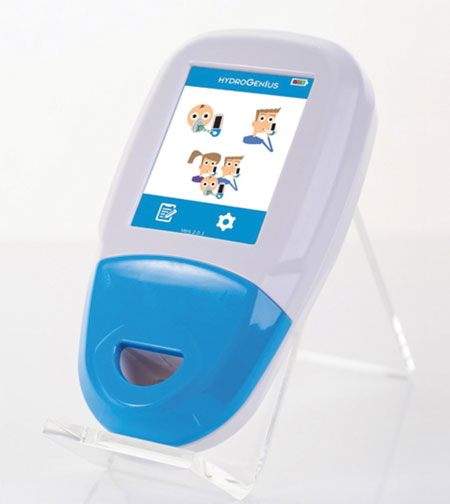What is lactose intolerance disorder?
Many people will have symptoms of abdominal pain, indigestion, and even diarrhea after drinking milk or consuming foods containing dairy ingredients. This happens when the body is unable to fully digest dairy sugars (lactose) because of low levels of lactase, a natural enzyme produced by the gut that helps digest lactose. When there is not enough lactase, the lactose ingested will not be digested and instead accumulate in the intestine, causing flatulence and digestive distress. Vietnam’s population has a high rate of lactose intolerance disorder, occurring in more than 80 per cent of people.
If you are lactose intolerant, your body may not absorb enough essential nutrients such as calcium and vitamin D found in milk or processed dairy foods. A lack of these nutrients can lead to stunted growth in children, and the risk of osteoporosis in aging adults, causing bones to become weak, fragile and difficult to recover.
Many factors increase the risks posed by lactose intolerance, including: aging, prematurity in babies, Crohn’s disease, celiac disease, side effects of radiation therapy, and chemotherapy-induced gastrointestinal complications.
When lactose intolerance is detected early, patients can adapt their diet to ensure an adequate supply of essential nutrients for the body, and control the symptoms of the disease to improve their quality of life.
Small intestinal bacterial overgrowth (SIBO)
This is a disorder caused by an overgrowth of small intestinal flora and occurs in around 10 to 15 per cent of people aged over 65 years. This imbalance of bacteria in the gut means that the patient suffers from digestive disorders such as abdominal pain, stomach, bloating, flatulence and diarrhea.

Patients with lactose intolerance will experience symptoms of flatulence and digestive system disorders.
The causes of SIBO include an abnormally slow rate of intestinal motility (i.e. the ability to move food through the intestines), decreased stomach acid, abnormal small gut structure, a weakened immune system and complications of other diseases such as cirrhosis, Crohn’s disease, celiac disease, hypothyroidism, HIV, diabetes, irritable bowel syndrome (IBS) and scleroderma. etc People who are at high risk of SIBO include those who are aging, use PPI drugs to treat gastritis and aid digestion following surgery on their muscles, who use antibiotics and who are alcoholics.
How do we perform the Hydrogen breath test?
FV’s Nutrition Doctor will prescribe a hydrogen breath test if the patient has suspected lactose intolerance disorder and small intestinal bacterial overgrowth (SIBO), signalled by lower or upper abdominal cramps, nausea, bloating, diarrhea, flatulence, borborygmi (stomach rumbling) and irritable bowel syndrome (IBS). Compared with previous tests which were invasive and costly – such as genetic tests, a biopsy sample from the small intestine and glucose tolerance test (blood test) – the Hydrogen breath test is simple, non-invasive and faster to complete, providing results in around two to three hours.
FV Hospital’s Nutrition & Dietetic Unit is the only place in Ho Chi Minh City using advanced Hydrogen breath testing technology to detect lactose intolerance disorders and small intestinal bacterial overgrowth (SIBO). Applying this test enables doctors to accurately diagnose digestive orders in patients and helps in detecting detect disease early so that effective treatment regimens can be designed to ensure the efficient outcome for patients.

The hand-held Hydrogenius device used for Hydrogen breath testing.
In addition, FV Hospital’s Nutrition & Dietetic Unit team of doctors also dedicates time to consult on nutritional treatment solutions tailored to each patient’s condition. Your doctor will thoroughly explain how to maintain good nutrition and supplement vitamin D and calcium while calculating how much lactose you should consume each day.
To book an appointment with Dr Nguyen Viet Quynh Thu, Head of Nutrition & Dietetic Unit, FV Hospital, please contact: (028) 54 11 33 33, ext. 1419

 Vi
Vi 












